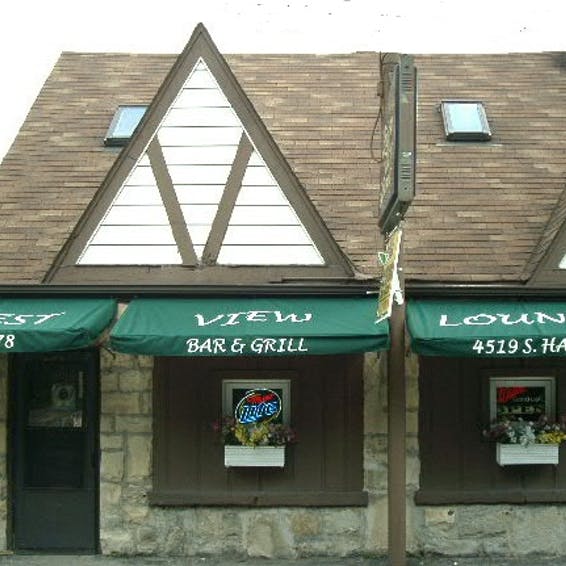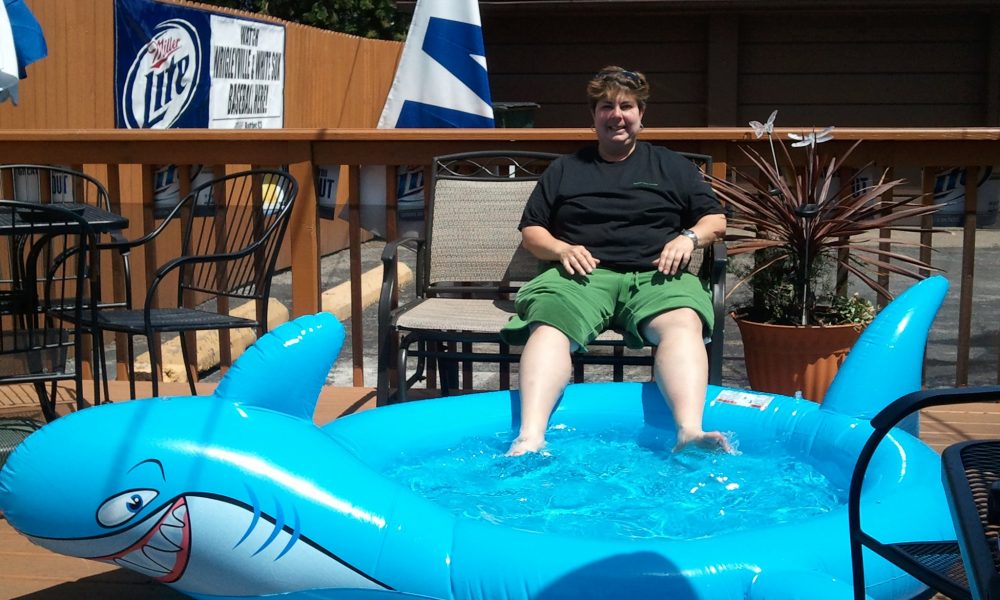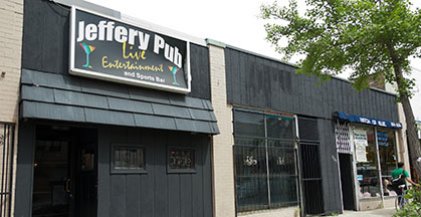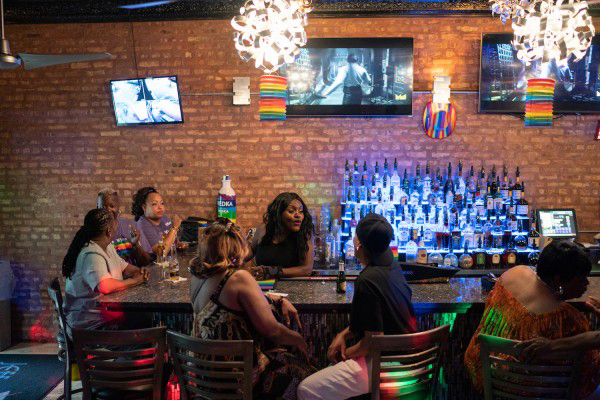Last week I wrote a blog on The Jeffery Pub, the oldest LGBTQ bar in Chicago, notable not just for its longevity, but because it is owned and operated by African Americans in a neighborhood far removed from the trendy white gayborhoods to the North.
In the course of my research, I discovered another piece of Chicago LGBTQ history. This place was (alas, I have to use the past tense here) located not far from where I grew up and went to college, and, in fact, my brother currently resides not far from it.
The Forest View Lounge was a lesbian bar located in the near southwestern suburb of Forest View, a sliver of a village between Stickney, Lyons, and Berwyn. These suburbs were originally bastions of white European ethnic communities (primarily Czech) that worked blue-collar jobs.

Source: https://chicago.gaycities.com/bars/1389-forest-view-lounge
Thus, I was really surprised when I found out about the place, which according to previous reviews on Yelp, was truly a gem of community spirit, not just a bar that apparently served awesome comfort food (especially a legendary volcano burger, stuffed with cheese and very spicy) but a friendly, welcoming place in an area not known in the past for welcoming minorities of any kind.
The bar's owners, Donalou Hendon and Marge Bellisario, were products of that area, making the best of its resources and community. Donalou was also born in Berwyn and grew up in a far Western suburb, while Marge spend most of her life in Berwyn, attending the local community college, Morton College. Donalou also went to Morton College to take courses to obtain her restaurant and sanitation license.

Source: http://voyagechicago.com/interview/meet-marge-bellisario-forest-view-lounge-fondly-known-view-forest-view-suburb-chicago/
Interestingly, Forest View Lounge survived a massive flood in the area in 2013. Marge was amazed the place was pretty much untouched, a veritable island in a temporary sea, which in some ways is a metaphor of for LGBTQ-safe spaces.
Now the bar is closed. Donalou died in 2015, and Marge, after a long battle, died of ovarian cancer in January of 2019.
According to Marge's obituary, "Thank you, Marge for accepting and welcoming me every time I came to your bar, even when I felt that I was not welcomed from others," said patron and acquaintance Kim Overby. "You and Donna always did your best to make customers feel like family or good friends. I will miss your laugh and the warmth of your acceptance. Be at peace now and hold your love once again. You are missed by many and we will all hold you and Donna in our hearts and memories."
I find it admirable that both women apparently didn't feel the need to “escape,” like I did. They weren't after corporate or academic glory in the “big city”; they were able to live authentically in their own backyard as life-partners, business partners, and friends to all humans and animals.





 Join our Email List
Join our Email List Like Us on Facebook
Like Us on Facebook Instagram
Instagram Youtube
Youtube Follow Us on Twitter
Follow Us on Twitter Follow us on Pinterest
Follow us on Pinterest